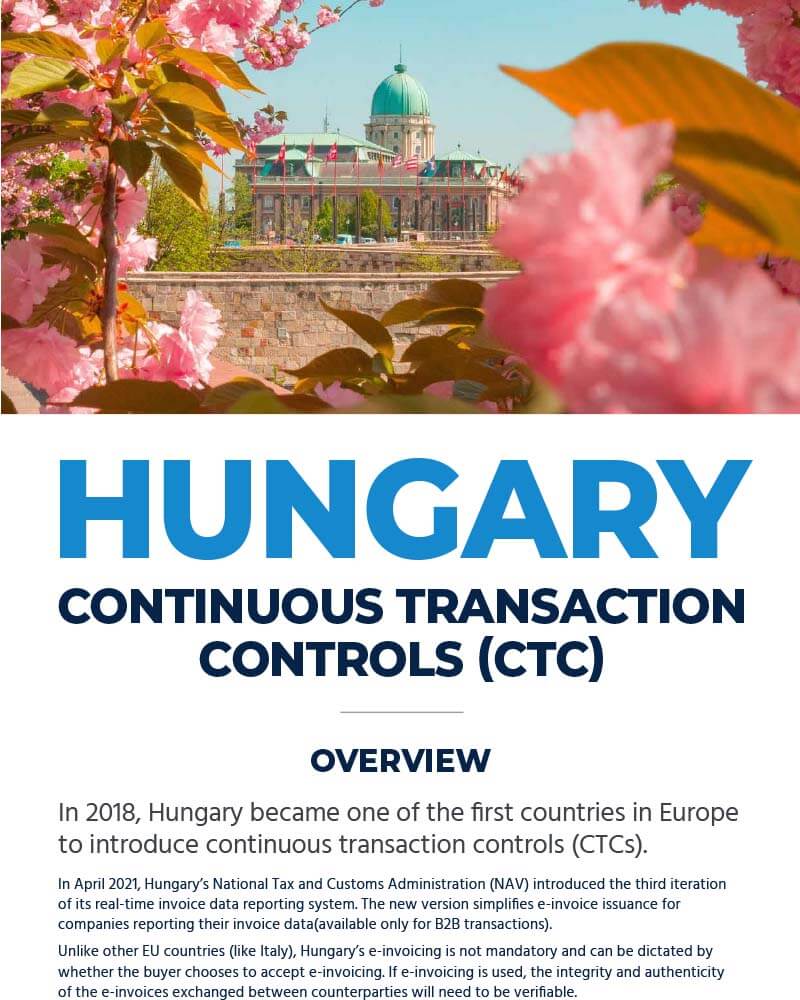
Infographic
Hungary’s CTC Requirements
Understand more about Hungary’s NAV system, how to file invoices, when businesses are required to comply and how Sovos can help.
In 2018, Hungary established a legal framework requiring taxpayers to use a designed schema to report invoice data to the tax authority (NAV) in real-time for domestic transactions above a minimum VAT amount.
Due to the success of this measure, the scope of the mandate has been extended to include a wider range of transactions, and the earlier thresholds have been abolished. The impact of the mandate is now broadly felt in Hungary where all transactions between domestic taxable persons must be reported to the NAV, regardless of the amount of VAT accounted.


1 July 2018: Mandate applies to all taxable persons to report invoice data in real-time to the National Custom and Tax administration of Hungary for domestic transactions with a minimum VAT amount of 100,000 HUF.
1 July 2020: The VAT threshold was abolished and all domestic transactions between taxable persons in Hungary must be reported regardless of the VAT accounted.
1 January 2021: Reporting obligations include B2C invoice issue and B2B intra-community supplies and exports.
1 January- 31 March 2021: The Ministry of Finance granted a sanction-free three-month grace period to comply with new reporting obligations and to give businesses time to transfer from the current version (v 2.0 XSD) to the new version v3.0 XSD.
1 April 2021: Mandatory usage of the new version (v3.0 XSD) begins.
Failure to report the invoices in real-time could lead to an administrative penalty of up to 500,000 HUF per invoice not reported.
Additional penalties would apply for non-compliance with the invoicing software requirements.


As Hungary edges ever closer to CTC e-invoicing invoice clearance, Sovos enables businesses to stay up to date with the latest requirements and technical specifications so they can effectively connect with the NAV and honour their VAT compliance obligations.